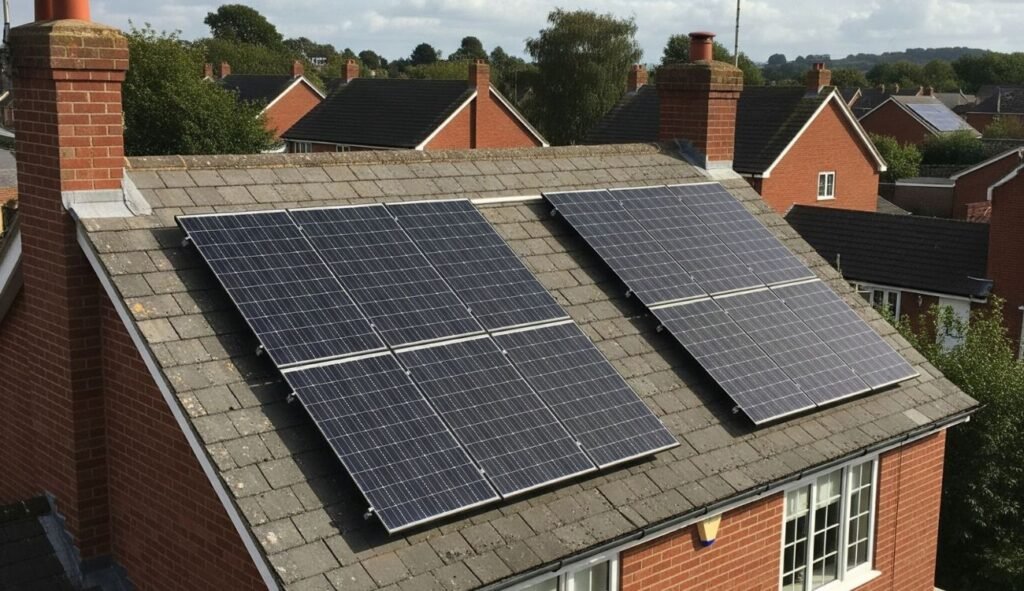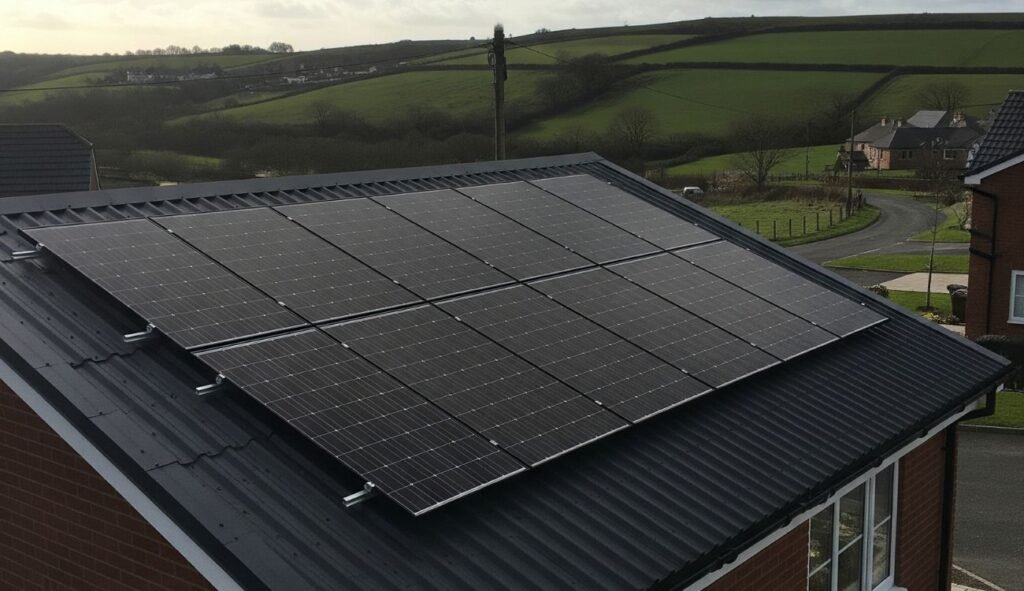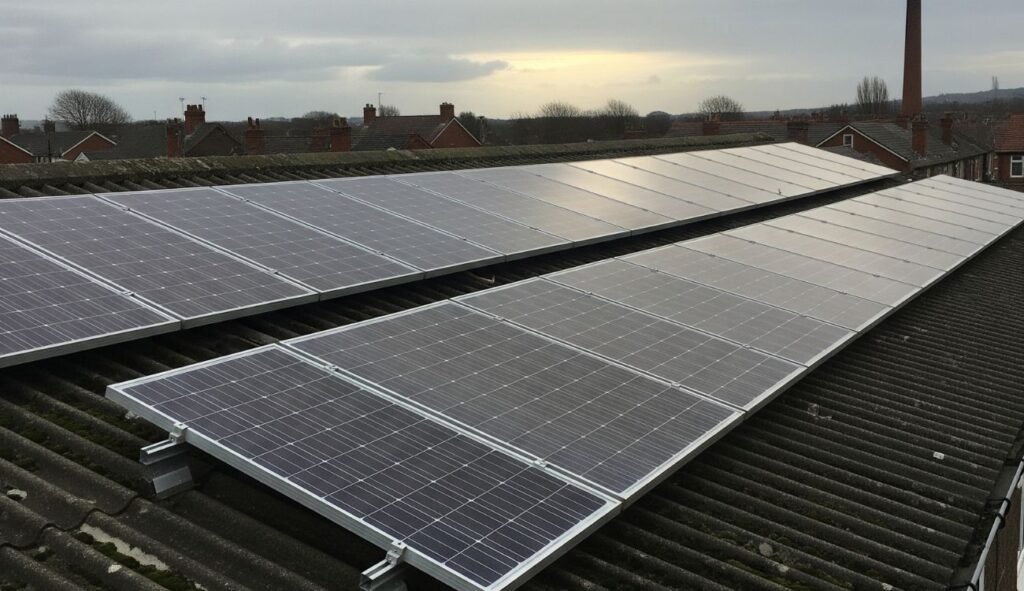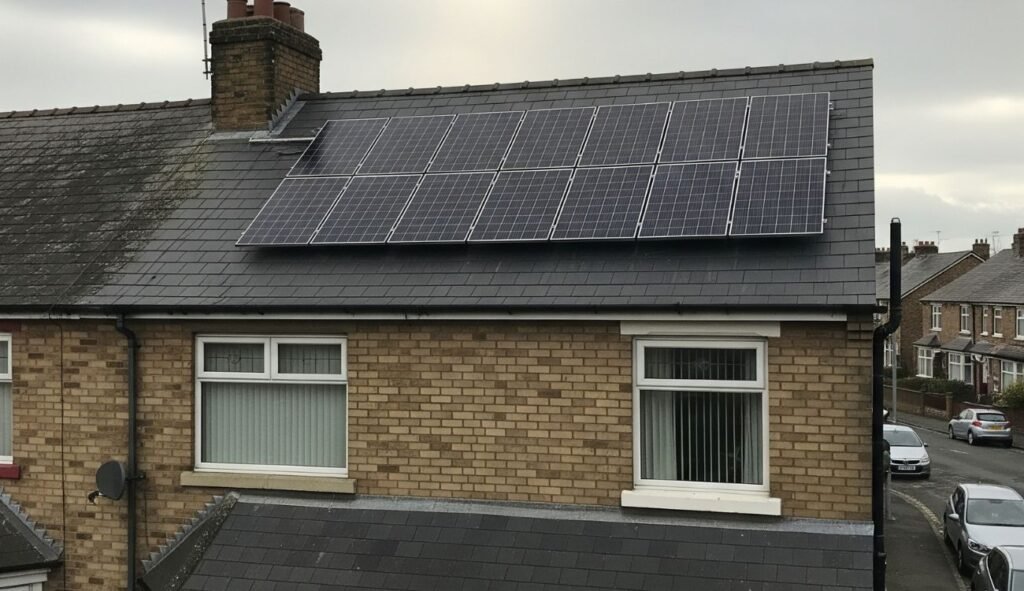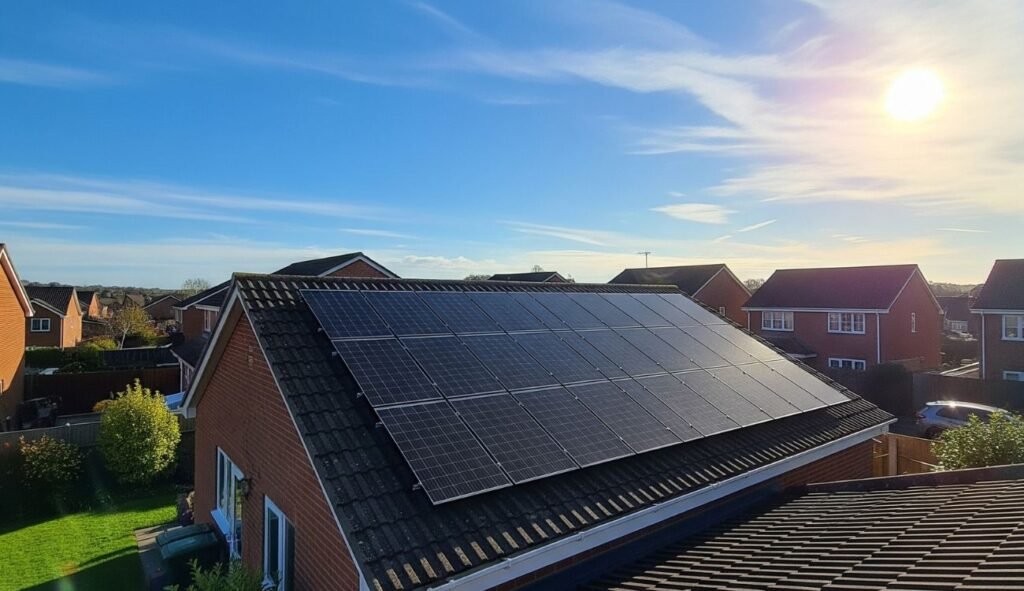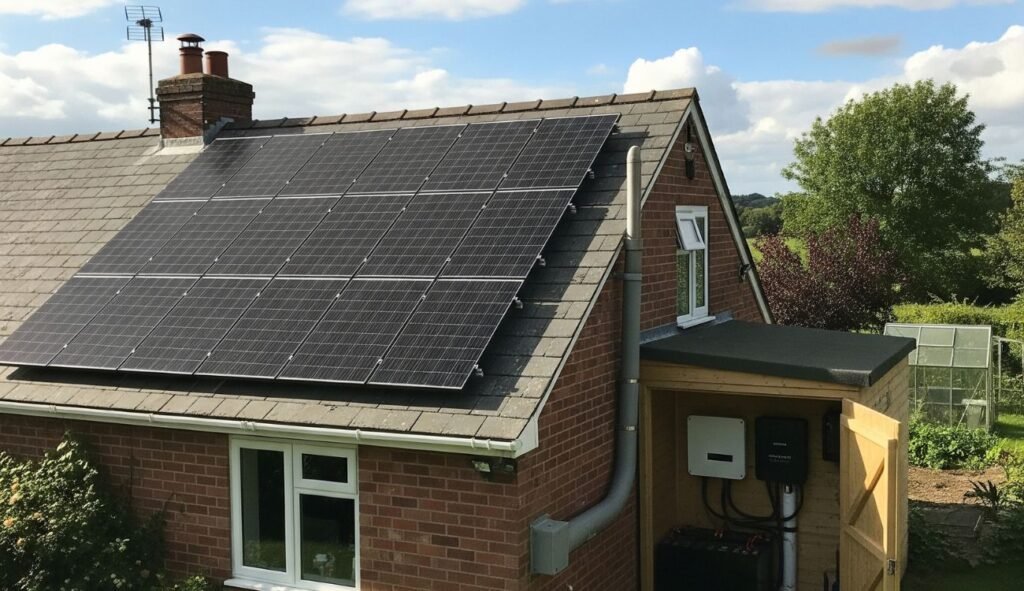Adding a battery to your solar setup can boost your energy independence, reduce your electricity bills, and maximise the value of your solar panels. But how does it work, and is it the right choice for your property?
This guide answers these questions with practical, UK-specific information, helping you decide if a solar battery is a smart upgrade for your current system.
Can I Add a Battery to My Existing Solar System?
Yes, you can add a battery to most existing solar panel systems, but there are important factors to consider.
Key Considerations Before Adding a Battery
- Compatibility: Older systems might not be compatible without costly replacements. Your current solar inverter and system must support battery integration or may need an upgrade.
- Battery Size & Type: Choosing the right battery type affects lifespan, cost, and performance. Lithium-ion batteries are the most common for home solar storage in the UK, known for durability and efficiency.
- Capacity Needs: Choosing the right battery size ensures stored energy meets your household demand. Battery size is measured in kilowatt-hours (kWh); typical home batteries range from 3kWh to 13.5kWh.
- Installation Costs: Cost-effectiveness depends on savings over time and any available incentives. The cost of solar batteries can range from £4,000 to £8,000 including installation.
- Grid Connection & Permissions: In most cases, you’ll need to inform your energy supplier and may require permission from your Distribution Network Operator (DNO).ompliance with UK grid regulations and safety.
According to Ofgem, adding battery storage is encouraged to improve grid flexibility and reduce peak demand, which benefits both consumers and the wider energy system.
How Much Does It Cost to Add a Battery To My Existing Solar System?
Battery storage installation costs can vary widely based on capacity, technology, and your existing system’s compatibility.
| Battery Capacity (kWh) | Typical Cost Range (Including Installation) |
|---|---|
| 3 – 5 kWh | £4,000 – £6,000 |
| 6 – 10 kWh | £6,000 – £8,000 |
| 11 kWh and above | £8,000+ |
While the initial cost can be significant, the savings on electricity bills and increased energy independence can provide a return on investment over 7 to 12 years depending on your energy usage.
How Do I Know If My Current Solar System Can Support A Battery?
Most modern solar systems installed in the last 5-10 years can accommodate battery storage, but older systems may require upgrades.
What to Check:
- Inverter Type: Some inverters are “hybrid,” meaning they can manage both solar generation and battery storage. Others may require replacement.
- Wiring & Components: Battery installation often requires additional wiring and a battery management system.
- Monitoring Capabilities: Some batteries come with apps or interfaces to track usage and optimise performance.
A professional installer like Future Heat in Tyne and Wear can assess your existing system and recommend suitable battery options to fit your needs and budget.
What Are The Benefits of Adding a Battery to My Solar System?
Adding a battery storage system offers several advantages:
- Energy Independence: Use your stored solar energy anytime, reducing reliance on the grid.
- Lower Electricity Bills: Store excess power when rates are low or free, and use it during expensive peak times.
- Backup Power: Some batteries provide emergency power during outages.
- Increase Solar Self-Consumption: Maximises the value of your solar panels by using more of your own electricity.
- Reduce Carbon Footprint: Using stored renewable energy reduces fossil fuel consumption.
The Energy Saving Trust highlights that solar battery storage can increase your solar system’s efficiency by up to 30% by storing and using energy that would otherwise be exported to the grid at lower rates.
Can Commercial Properties Add Batteries To Existing Solar Systems?
Yes. Commercial buildings in the UK increasingly add battery storage to reduce energy costs and increase resilience. Larger battery systems tailored to commercial energy demand can help with:
- Peak shaving (reducing demand charges)
- Load shifting (using stored energy at high-tariff times)
- Emergency backup power
Businesses should seek bespoke advice from professional solar installers experienced with commercial systems, such as Future Heat.
Frequently Asked Questions (FAQs)
Some insurers may adjust premiums slightly when adding a battery system due to the increased value and electrical complexity. Check with your insurer before installation.
Most lithium-ion solar batteries have a lifespan of 10-15 years, depending on usage and maintenance.
It depends on the battery system and inverter compatibility; a professional assessment is recommended.
Only batteries with backup functionality and appropriate inverter settings provide power during outages.
Battery suitability depends on factors like roof space, energy consumption, and system size. Both residential and commercial properties can benefit with the right system.
Our Verdict
Adding a battery to your existing solar system in the UK is a practical way to maximise the benefits of your solar investment.
While upfront costs and compatibility checks are important considerations, the potential to lower energy bills, increase self-sufficiency, and reduce carbon footprint makes battery storage an attractive upgrade for many homeowners, landlords, and commercial property owners.
For tailored advice and professional installation, especially if you are in Tyne and Wear or the North East, consider requesting a solar battery quote from Future Heat. Our expertise ensures your solar and battery system is optimised to meet your energy needs now and into the future.
Jamie Maguire is Managing Director at Future Heat Ltd, the UK-based renewable energy company specialising in heat pumps, solar panels and energy-efficient boiler solutions. He leads the company’s strategic vision to decarbonise homes and businesses across the UK by delivering innovative, sustainable heating and power systems. Jamie is passionate about shaping the future of energy, supporting communities and empowering teams of skilled engineers to deliver lasting value and carbon reductions nationwide.


